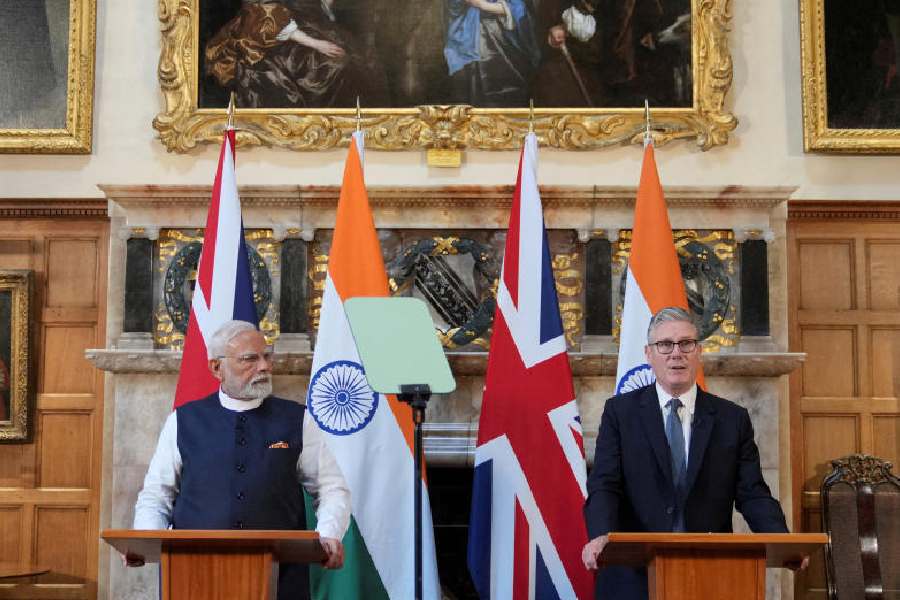The visit to the United Kingdom by Prime Minister Narendra Modi on Wednesday and Thursday capped a recent surge in ties between the two countries, especially in the economic domain, with India and the UK signing a historic free trade agreement. The deal, under which almost all Indian goods exported to the UK will be exempt from tariffs, is India’s first such trade pact outside Asia. For the UK, which will benefit from cuts to tariffs imposed on 90% of British goods categories, the agreement is a major post-Brexit win. Even as the British prime minister, Keir Starmer, hosted Mr Modi, the public show of confidence in the relationship was also accompanied by subtle reminders of both bilateral and global tensions that will shape the ties as much as the trade pact will. In his comments to the press, Mr Modi made a veiled reference to the presence of pro-Khalistani activists in the UK who have in recent years targeted the Indian high commission and Indian diplomats. Earlier this week, the Indian foreign secretary, Vikram Misri, had spoken about that issue as one that India would bring up during the prime minister’s visit. India has previously been disappointed by the failure of British authorities to act firmly against Khalistani activists.
Although the Indian government has tried to project the trade deal as an agreement that will also make it easier for Indian workers to find jobs in the UK, Mr Starmer’s administration is increasingly tightening regulations for fresh entrants into Britain. Its recent deal with France to curb irregular migration underscores the broader anti-immigrant sentiment that is gaining ground in the UK, a reality also demonstrated by the fast-rising support for the far-Right Reform UK party. No trade deal will change that political equation. Yet the two countries share an approach to the world’s biggest agent of chaos: President Donald Trump of the United States of America. Unlike some other leaders who have quarrelled with Mr Trump, the prime ministers of India and the UK have carefully cultivated a camaraderie with the American president. The UK has secured a trade agreement with the US which, while far from being ideal from its perspective, saves it from major tariffs. India is negotiating a trade deal of its own with the US. The India-UK trade pact must now serve as a launch pad for the two countries to expand collaboration in other areas and address each other’s core concerns.










